Photo by Brian Ach/Getty Images for Bob Woodruff Foundation
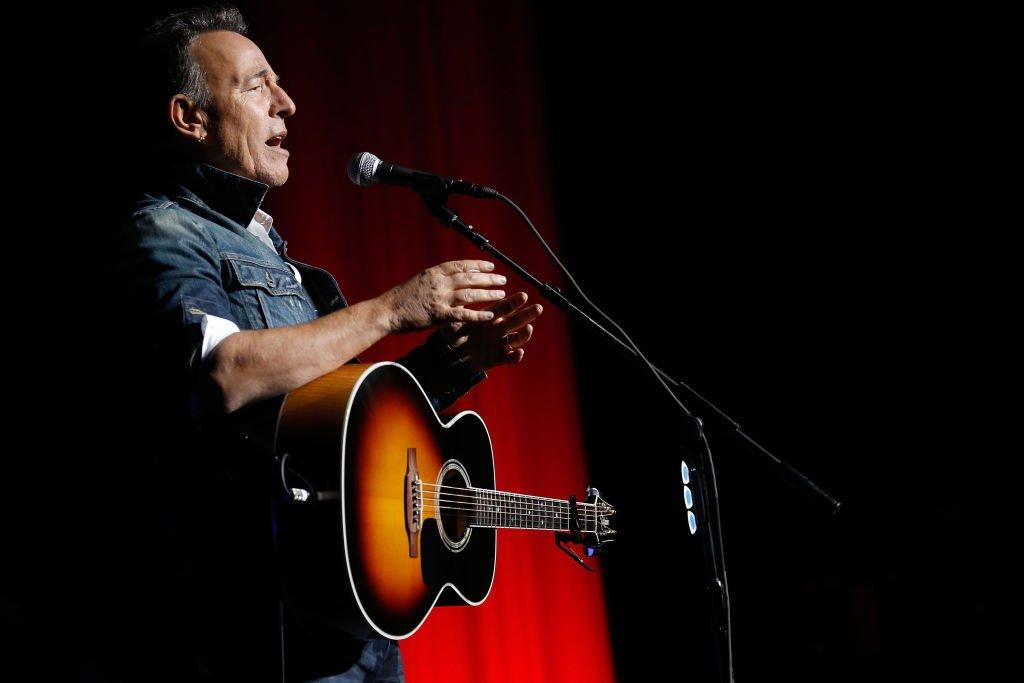
Bruce Springsteen
news
Bruce Springsteen Historical Exhibit, "Springsteen: His Hometown," Opening In New Jersey
The exhibit, hosted by New Jersey’s Monmouth County Historical Association, will be "a comprehensive look at how Monmouth County, NJ has been thematically woven into Bruce Springsteen’s music and art throughout his career"
20-time GRAMMY winner Bruce Springsteen and his music is a vital part of New Jersey history—and now the Garden State's Monmouth County Historical Association, located in Freehold, has announced a new exhibit dedicated to the Boss.
Called "Springsteen: His Hometown," the exhibit will be a "comprehensive look at how Monmouth County, NJ has been thematically woven into Bruce Springsteen’s music and art throughout his career." It opens on Sept. 29, only a few days after Springsteen's 70th Birthday on Sept. 23, as Rolling Stone points out. "His Hometown" is slated to run through the fall of 2020, with proceeds benefiting the historical association.
According to Rolling Stone, the exhibit will feature more than 150 items, many from the Bruce Springsteen Archives and Center for American Music at Monmouth University. Attendees will get to check out early-career items on display, such as an original color poster from Springsteen’s first band the Castiles, a scrapbook from Springsteen's mother, and even family heirlooms like a 19th century Civil War document that includes Bruce's ancestor Alexander Springsteen.
GRAMMY Museum founding director Robert Santelli served as an advisor in curating the exhibit, along with Director of the Archives Eileen Chapman. The exhibit is co-curated by Monmouth University’s Specialist Professor of Public History Melissa Ziobro and Bernadette Rogoff, Director of Collections for MCHA.
"The MCHA is honored to have the opportunity to exhibit some of the most unique, and some never-before-seen items that reflect the unparalleled career and life of Bruce Springsteen,” Linda Bricker, President, MCHA Board of Trustees, said in a statement. "Springsteen remains an essential part of the fabric that comprises the deep history of Monmouth County. We would especially like to thank Eileen Chapman, Melissa Ziobro and the Bruce Springsteen Archives and Center for American Music for their continued generosity and collaboration."
Tickets to the exhibit are available here.
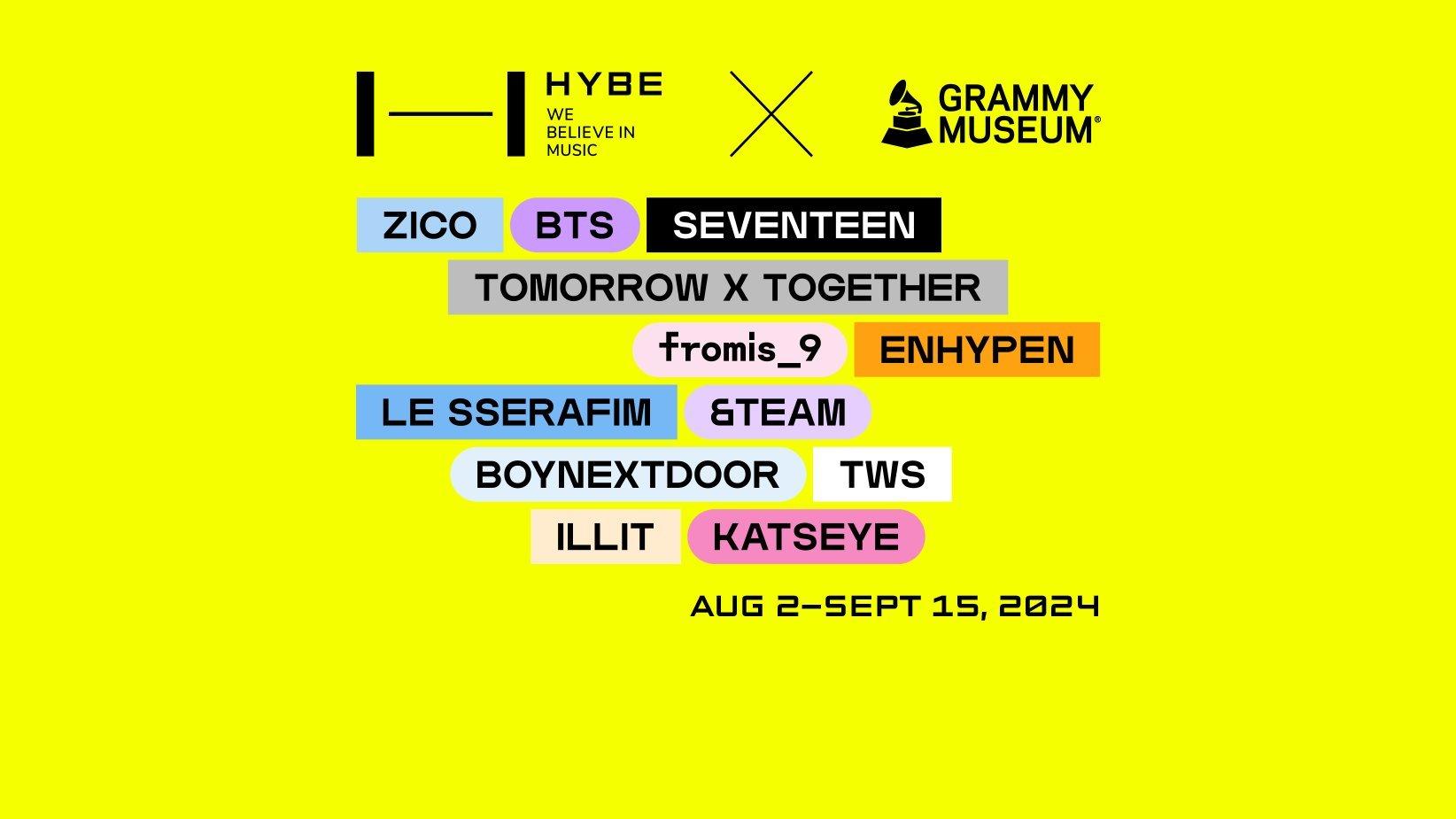
Graphic courtesy of the GRAMMY Museum
news
GRAMMY Museum Partners With HYBE For New K-Pop Exhibit 'HYBE: We Believe In Music' Opening Aug. 2
Running Aug. 2 through Sept. 15, the GRAMMY Museum exhibit showcases artifacts from superstar HYBE artists, including BTS, SEVENTEEN, TOMORROW X TOGETHER, ENHYPEN, LE SSERAFIM, and many more.
The GRAMMY Museum joins forces with HYBE to present its newest exhibit, HYBE: We Believe In Music, A GRAMMY Museum Exhibit. This interactive exhibit chronicles the history and impact of HYBE, and showcases its legacy of unparalleled innovation and creativity as a trend-setting global entertainment brand.
The exhibit opens on Aug. 2 in downtown Los Angeles and features spotlight moments with K-pop stars BTS, SEVENTEEN, TOMORROW X TOGETHER, ENHYPEN, LE SSERAFIM, and many more. "HYBE: We Believe In Music" runs through Sept.15. The exhibit will kick off on Aug. 1 with "Global Spin Live: TWS," a program featuring a moderated conversation with K-pop group TWS, followed by a performance.
The exhibit traces HYBE's evolution and influence by showcasing instantly recognizable artifacts from its roster of artists, creators, and fans. The displays notably feature original outfits worn in iconic music videos such as "Yet To Come (The Most Beautiful Moment)" by BTS, "MAESTRO" by SEVENTEEN, "Sugar Rush Ride" by TOMORROW X TOGETHER, "Sweet Venom" by ENHYPEN, and "EASY" by LE SSERAFIM. HYBE: We Believe In Music also boasts accessories and performance gear donned by ZICO, fromis_9, BOYNEXTDOOR, TWS, &TEAM, and ILLIT. The exhibit marks the first time these artifacts will be on display together in one location.
Other highlights include interactive sing-along and dance rooms, a dedicated Fan Section celebrating the endless support between HYBE artists and their fandoms, a Mono to Immersive room featuring BTS's 2022 GRAMMYs performance of "Butter," and a Photoism Booth that allows visitors to pose alongside their favorite K-pop artists. The GRAMMY Museum exhibit will also feature exclusive video content with producers, artists, music videos, and more.
"HYBE and their artists represent the present and future of the global music landscape, and our goal with this exhibit is to deepen the appreciation and respect for its creators and performers," says Michael Sticka, President/CEO of the GRAMMY Museum. "HYBE has contributed to creating a playground of innovation that inspires fandoms that transcend age, gender, geography and beyond. The GRAMMY Museum is thrilled to provide a space where fans can express their love for K-pop and feel closer to their favorite idols."
Read more: 11 Rookie K-Pop Acts To Know In 2024: NCT Wish, RIIZE, Kiss Of Life & More
HYBE Chief Operating Officer Taeho Kim added, "Putting out an exhibition that captures HYBE's journey is a new experience for us. We're very excited about this partnership with GRAMMY Museum, and we look forward to welcoming music fans who visit the museum to enjoy and connect with our historical pieces."
The exhibit highlights the roots of HYBE's meteoric rise. In 2005, South Korean producer, composer, and songwriter Bang Si-Hyuk, known as "hitman" Bang, changed the trajectory of Korean pop music by launching the record label Big Hit Entertainment. He soon signed a talented 16-year-old rapper named RM, which became the first step in creating the label's groundbreaking boy band — BTS. With the group's global success, "hitman" Bang and Big Hit Entertainment became known as musical trailblazers and record industry innovators. Big Hit Entertainment has now evolved into HYBE, which only continues to break boundaries in music and beyond.
More K-Pop News
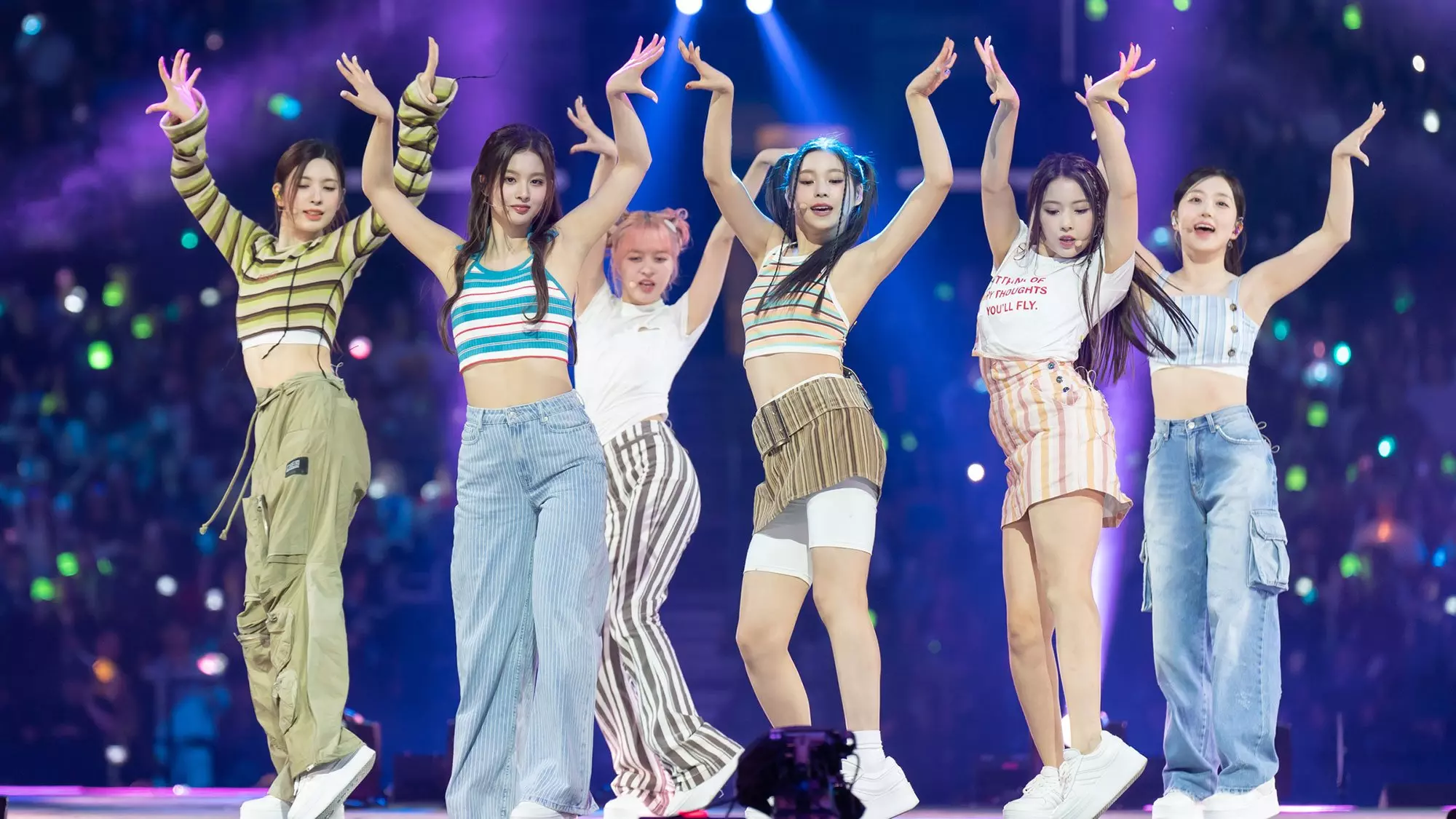
KCON L.A. 2024 Returns: Get Ready With This Playlist Featuring NCT 127, Zerobaseone, ENHYPEN, Zico & More
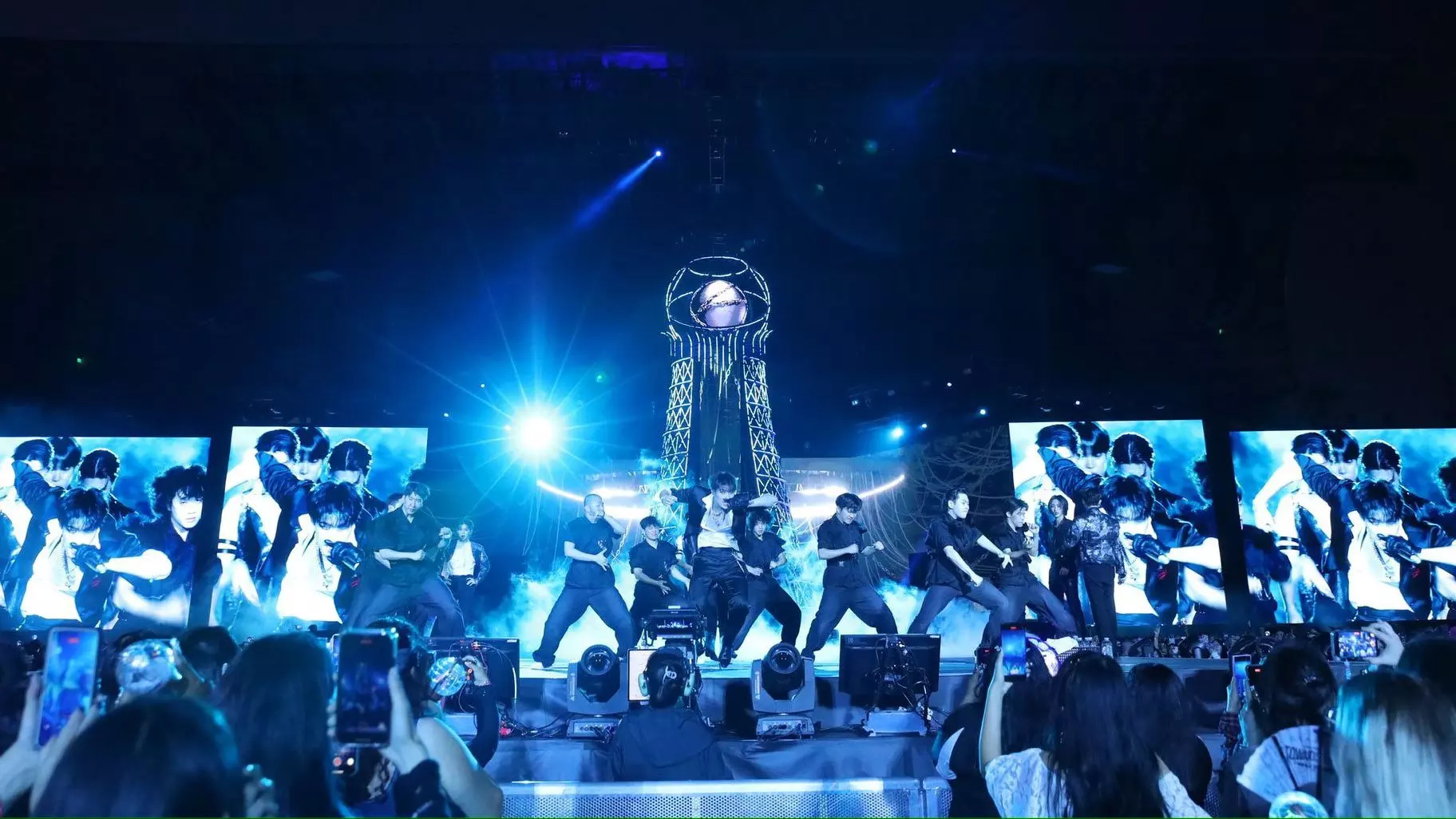
ATEEZ’s First U.S. Stadium Show Was A Triumph & Testament To Their Growth
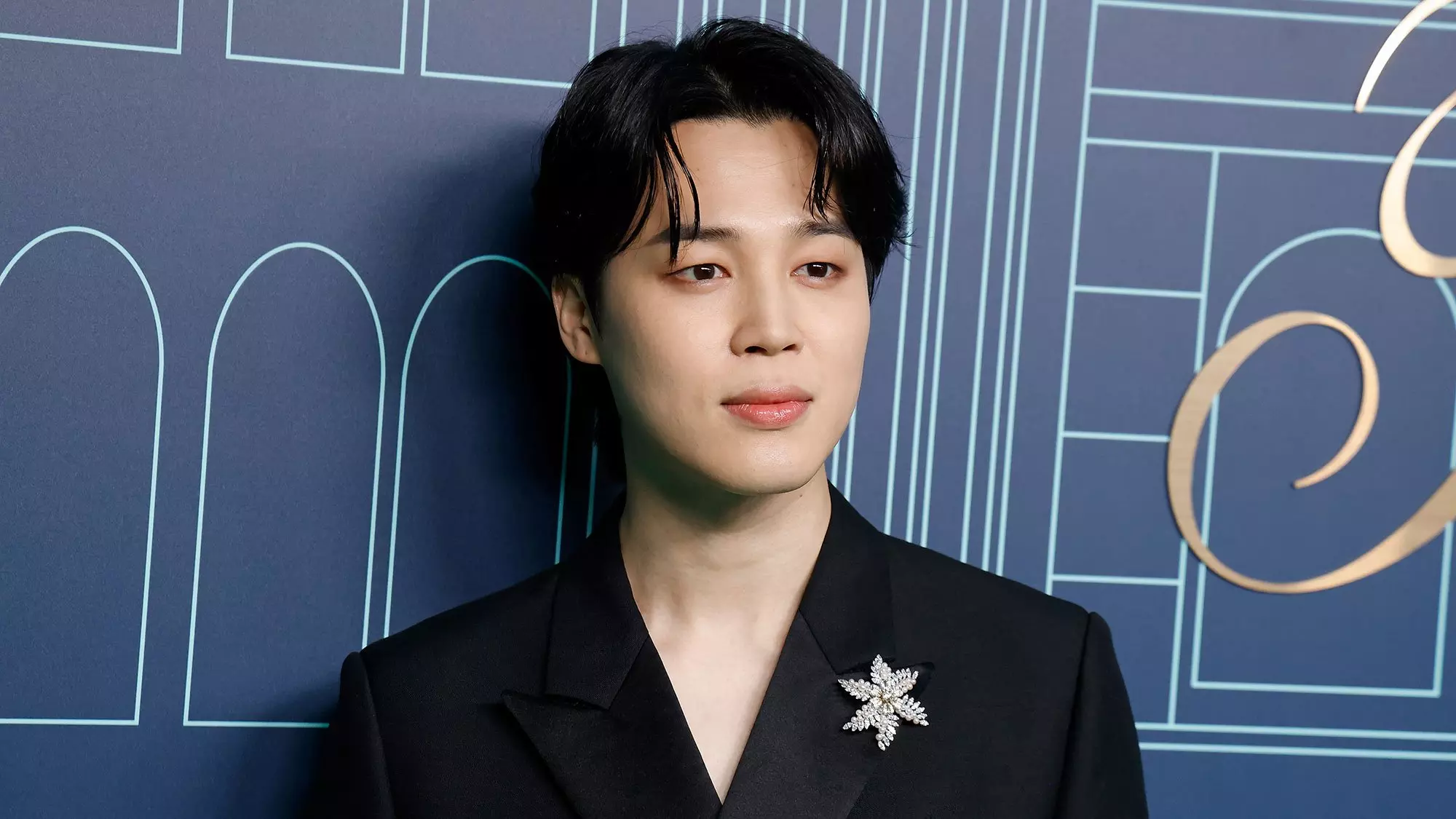
5 Takeaways from BTS Jimin's New Album, 'MUSE': A Bold Exploration Of Love And Inspiration

NCT 127 Essential Songs: 14 Tracks You Need To Know From The K-Pop Juggernauts

ENHYPEN And JVKE "Say Yes" To Cross-Cultural Collabs & Exploring New Genres
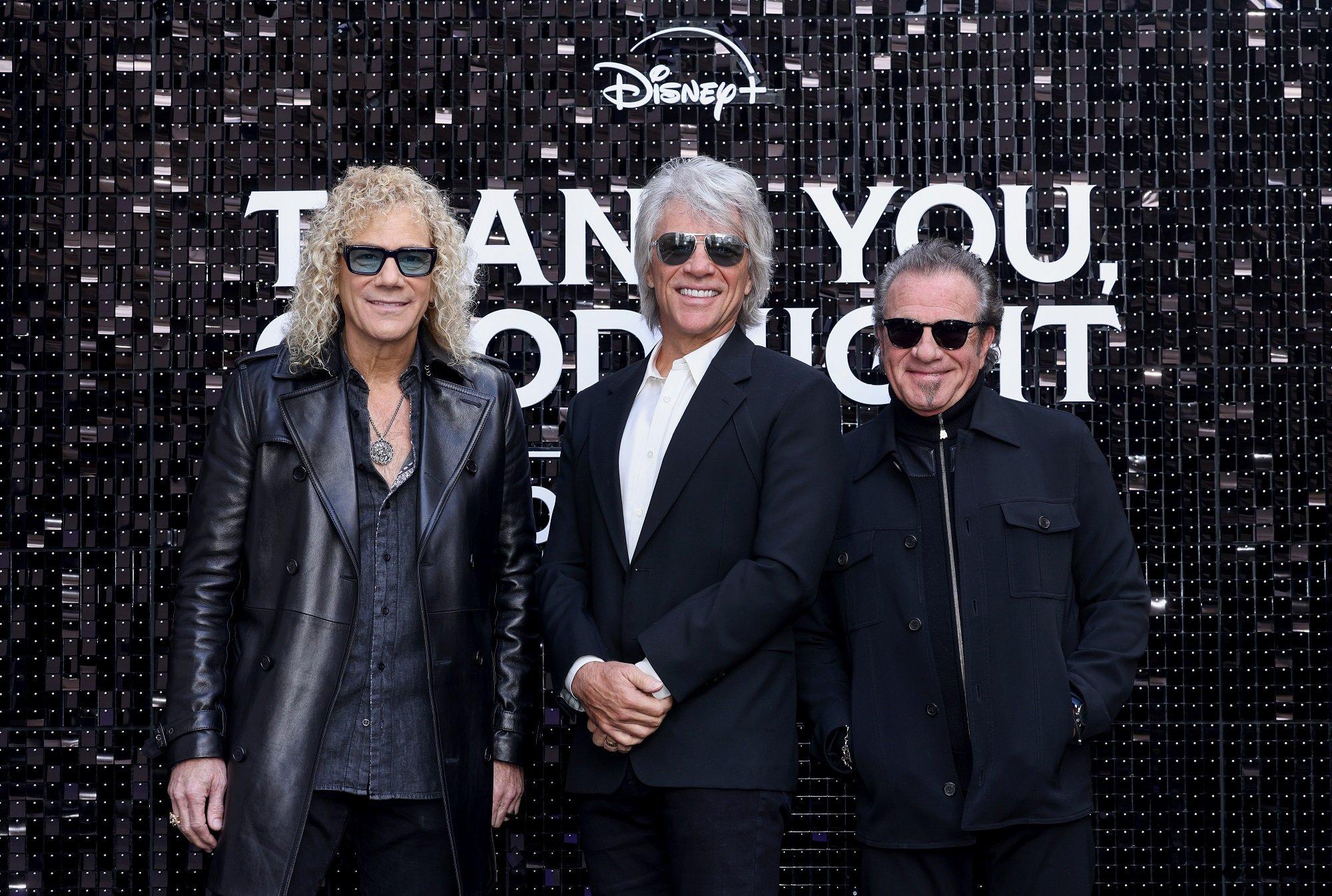
Photo: Tim P. Whitby/Getty Images for Disney+
list
10 Facts About Jon Bon Jovi: A Friendship With Springsteen, Philanthropy, Football Fanaticism & More
Ahead of the band's new album 'Forever,' out June 7, and a new Hulu documentary, "Thank you, Goodnight: The Bon Jovi Story," read on for 10 facts about the GRAMMY-winning group and its MusiCares Person Of The Year frontman.
Bon Jovi have officially been in the cultural conversation for five decades — and it looks like we'll never say goodbye.
The band's self-titled debut album was unleashed upon the world in 1984, and lead single "Runaway" made some waves. Yet the New Jersey group didn't truly break through until their third album, the 12 million-selling Slippery When Wet. By the late 1980s, they were arguably the biggest rock band in the world, selling out massive shows in arenas and stadiums.
Since, Bon Jovi releases have consistently topped album charts (six of their studio albums hit No. 1). A big reason for their continued success is that, unlike a majority of their ‘80s peers, frontman Jon Bon Jovi made sure that they adapted to changing times while retaining the spirit of their music — from the anthemic stomp of 1986’s "Bad Medicine" to the Nashville crossover of 2005’s "Who Says You Can’t Go Home." It also doesn’t hurt that the 2024 MusiCares Person Of The Year has aged very gracefully; his winning smile and charismatic personality ever crush-worthy.
Their fifth decade rocking the planet has been marked by many other milestones: The release of a four-part Hulu documentary, "Thank you, Goodnight: The Bon Jovi Story"; Bon Jovi's 16th studio album Forever, and fan hopes for the return of original guitarist Richie Sambora who left unexpectedly in 2013. Despite all of these positive notes, there is an ominous cloud hanging over the group as their singer had to undergo vocal surgery following disappointing, consistently off-key performances on the group's 2022 U.S. tour. Even afterward, he remains unsure whether he’ll be able to tour again. But Bon Jovi remains popular and with Sambora expressing interest in a reunion, it's plausible that we could see them back on stage again somehow.
Jon Bon Jovi has also had quite a multifaceted career spun off of his success in music, as shown by the following collection of fascinating facts.
Jon Bon Jovi Sung With Bruce Springsteen When He Was 17
By the time he was in high school, Jon Bongiovi (his original, pre-fame last name) was already fronting his first serious group. The Atlantic City Expressway was a 10-piece with a horn section that performed well-known tunes from Jersey acts like Bruce Springsteen and Southside Johnny and the Asbury Jukes.
They regularly played The Fast Lane, and one night Bruce Springsteen was in the audience. To Bon Jovi’s surprise, The Boss jumped onstage to join them. The two later became good friends — during his MusiCares performance, Bon Jovi introduced Springsteen as "my mentor, my friend, my brother, my hero."
Jon Recorded Bon Jovi’s First Hit Before The Band Formed
Although "Runaway" was the debut single and lone Top 40 hit from Bon Jovi's first two albums, it was recorded as a professional demo back in 1982.
Bon Jovi got a gig as a gopher at Power Station, the famed studio co-owned by his second cousin Tony Bongiovi where artists like the Rolling Stones, Diana Ross, and David Bowie recorded. (He watched even watched Bowie and Freddie Mercury record the vocals for "Under Pressure.")
The future rockstar cut "Runaway" (which was co-written mainly by George Karak) and other demos with session musicians — his friend, guitarist Aldo Nova, Rick Springfield/John Waite guitarist Tim Pierce, Springsteen keyboardist Roy Bittan, bassist Hugh McDonald (a future Bon Jovi member), and Scandal drummer Frankie LaRocca. The song first appeared on a WAPP compilation under his name, but then it was placed on Bon Jovi’s debut album. When the video for "Runway" was created nearly two years later, members of Bon Jovi were miming to other people’s performances.
Although it is a classic, original guitarist Richie Sambora hates it and never wants to play it again.
He Eloped With His High School Sweetheart In April 1989
During the band’s world tour in support of New Jersey, Bon Jovi and Dorothea Hurley spontaneously eloped in a quickie wedding in Vegas. His bandmates and management were shocked to find this out; the latter probably feared that his ineligible bachelor status would harm their popularity with their ardent female fans. But it simply played more into his more wholesome image that differed from other hard rockers of the time.
In May 2024, Bon Jovi’s son Jake secretly married "Stranger Things" actor Millie Bobby Brown. It was like history repeating itself, except this time family was involved.
Listen: Revisit Jon Bon Jovi's Greatest Hits & Deep Cuts Ahead Of MusiCares' Person Of The Year 2024 Gala
The Bongiovi Family Is Part Of The Bon Jovi Family
Back in the ‘80s, parents often didn’t like their kids’ music. However, Bon Jovi’s parents completely supported his. Mother Carol Bongiovi often chaperoned his early days when he was an underaged kid playing local clubs and bars in New Jersey. Father Jon Sr. was the group’s hair stylist until their third album, Slippery When Wet. He created his son's signature mane.
Jon’s brother Matthew started as a production assistant in the band’s organization, then worked for their management before becoming his brother’s head of security and now his tour manager. His other brother Anthony became the director of a few Bon Jovi concert films and promo clips. He’s also directed concert films for Slayer and the Goo Goo Dolls.
Bon Jovi Is A Regular In Television & Film
After writing songs for the Golden Globe-winning "Young Guns II soundtrack (released as the solo album Blaze Of Glory) and getting a cameo in the Western’s opening, Bon Jovi was bitten by the acting bug. He studied with acclaimed acting coach Harold Guskin in the early ‘90s, then appeared as the romantic interest of Elizabeth Perkins in 1995's Moonlight and Valentino.
In other movies, Bon Jovi played a bartender who’s a recovering alcoholic (Little City), an ex-con turning over a new leaf (Row Your Boat), a failed father figure (Pay It Forward), a suburban dad and pot smoker (Homegrown), and a Navy Lieutenant in WWII (U-571). The band’s revival in 2000 slowed his acting aspirations, but he appeared for 10 episodes of "Ally McBeal," playing her love interest in 2002.
Elsewhere on the silver screen, the singer has also portrayed a vampire hunter (Vampiros: Los Muertos), a duplicitous professor (Cry Wolf), the owner of a women’s hockey team (Pucked), and a rock star willing to cancel a tour for the woman he loves (New Year’s Eve). He hasn’t acted since 2011, but who knows when he might make a guest appearance?
Jon Bon Jovi Once Co-Owned A Football Team
In 2004, Bon Jovi became one of the co-founders and co-majority owner of the Philadelphia Soul, which were part of the Arena Football League (AFL). (Sambora was a minority shareholder.) The team name emerged in a satirical scene from "It’s Always Sunny In Philadelphia" during which Danny DeVito’s character tries to buy the team for a paltry sum and twice butchers the singer’s name.
Jon stuck with the team until 2009, a year after they won Arena Bowl XXII, defeating the San Jose SaberCats. He then set his eyes on a bigger prize, the Buffalo Bills, aligning himself with a group of Toronto investors in 2011. One of his biggest competitors? Donald Trump, who ran a smear campaign alleging that the famed singer would move the team to Toronto.
In the end, neither man purchased the team as they were outbid by Terry and Kim Pegula, who still own the Bills today.
Jon & Richie Sambora Wrote Songs For Other Artists
Having cranked out massive hits with songwriter Desmond Child, Bon Jovi and Sambora decided to write or co-write songs for and with other artists.
In 1987, they co-wrote and produced the Top 20 hit "We All Sleep Alone" with Child for Cher, and also co-wrote the Top 40 hit "Notorious" with members of Loverboy. In 1989, the duo paired up again Loverboy guitarist Paul Dean for his solo rocker "Under The Gun" and bequeathed the New Jersey outtake "Does Anybody Really Fall in Love Anymore?" (co-written with Child and Diane Warren) to Cher.
The Bon Jovi/Sambora song "Peace In Our Time" was recorded by Russian rockers Gorky Park. In 1990, Paul Young snagged the New Jersey leftover "Now and Forever," while the duo penned "If You Were in My Shoes" with Young, though neither song was released. In 2009, Bon Jovi and Sambora were inducted into the Songwriters Hall of Fame for their contributions to music.
Jon Bon Jovi Once Ran His Own Record Label
For a brief time in 1991, he ran his own record label, Jambco, which was distributed through Bon Jovi’s label PolyGram Records. The only two artists he signed were Aldo Nova and Billy Falcon, a veteran singer/songwriter who became Bon Jovi's songwriting partner in the 2000s. Neither of their albums (Aldo Nova’s Blood On The Bricks and Billy Falcon’s Pretty Blue World) were big sellers, and the label folded quickly when they began losing money.
Still, the experience gave Bon Jovi the chance to learn about the music business. That experience helped after he fired original manager Doc McGhee in 1991 and took over his band’s managerial reins until 2015.
Bon Jovi's Vocal Issues Aren't New
Although Jon Bon Jovi's vocal problems have become a major issue recently, they stem back to the late 1980s. It's doubtful as to whether Jon had proper vocal training for a rock band at the start.
The group did 15-month tours to support both the Slippery When Wet and New Jersey albums. Near the end of the grueling Slippery tour, Bon Jovi was getting steroid injections because his voice was suffering.
While his voice held up into the 2000s, it has become apparent over the last decade that his singing is rougher than it used to be. As shown in the Hulu new documentary, the singer has been struggling to maintain his voice. It’s natural for older rock singers to lose some range — it’s been very rare to hear him sing any of the high notes in "Livin’ On A Prayer" over the last 20 years — but he admitshe is unsure whether he can ever tour again, even with recent surgery.
Bon Jovi Has Been A Philanthropist For Over Three Decades
Back in the 1980s, the upbeat Bon Jovi made it clear that they were not going to be a toned-down political band. But in the ‘90s, he and the band toned down their look, evolved their sound, and offered a more mature outlook on life.
Reflecting this evolved viewpoint, the band started an annual tradition of playing a December concert in New Jersey to raise money for various charitable causes; the concert series began in 1991 and continued with the band or Jon solo through at least 2015. The group have played various charitable concert events over the years including the Twin Towers Relief Benefit, Live 8 in Philadelphia, and The Concert For Sandy Relief.
By the late 2000s, Jon and Dorothea founded the JBJ Soul Kitchen to serve meals at lower costs to people who cannot afford them. COVID-19 related food shortages led the couple to found the JBJ Soul Kitchen Food Bank. Their JBJ Soul Foundation supports affordable housing and has rebuilt and refurbished homes through organizations like Project H.O.M.E., Habitat For Humanity, and Rebuilding Together.
While he may be a superstar, Jon Bon Jovi still believes in helping others. For his considerable efforts, he was honored as the 2024 MusiCares Person Of The Year during 2024 GRAMMY Week.
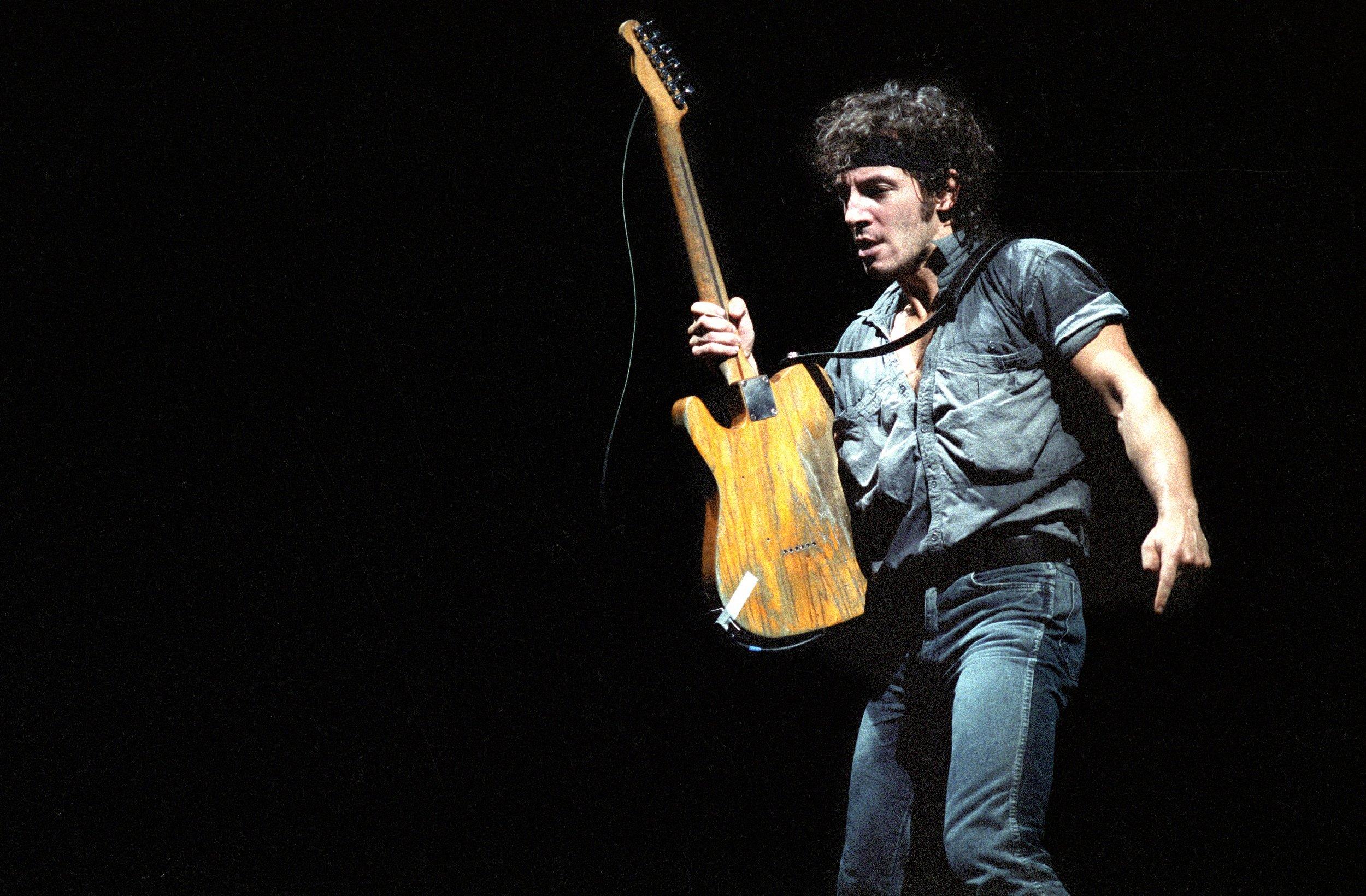
Photo: Brooks Kraft LLC/Corbis via Getty Images
list
How Bruce Springsteen's 'Born In The U.S.A.' Changed Rock History — And The Boss' Own Trajectory
On the 40th anniversary of Bruce Springsteen's seminal album detailing working class life Reagan era America, reflect on the many ways 'Born In The U.S.A.' impacted pop and rock music.
Bruce Springsteen himself might not be particularly enthusiastic about his seventh studio effort, Born In The U.S.A. ("a group of songs about which I've always had some ambivalence"). But for the record buyers of 1984 – and indeed much of the decade thereafter – it was a towering achievement in combining classic and contemporary American rock.
Born In The U.S.A. was co-produced with Jon Landau, Chuck Plotkin, and E Street Band member Steven Van Zandt, and represented a complete divergence from his previous release, the acoustic affair Nebraska. Audiences didn't seem to mind the change in tone: The 12-track LP spent seven weeks atop the Billboard 200 and sold more than 17 million copies in America alone.
It also equaled the record set by Michael Jackson's Thriller by spawning seven consecutive U.S. Top 10 hits, including the oft-misunderstood title track, "I'm On Fire," and his highest-charting, "Dancing in the Dark." (The latter netted The Boss his first GRAMMY Award, for Best Rock Vocal Performance, Male.) Born's themes of working-class life in the Ronald Reagan era struck a chord with homegrown audiences, albeit occasionally for unintended reasons, and picked up a coveted Album Of The Year nod at the 1985 GRAMMYs.
But there's more to Born In The U.S.A.'s story than blockbuster sales and critical acclaim. It also changed the course of rock music in several ways, whether reigniting America's love of the genre, proving that synths and guitars could work together in perfect harmony, or simply popularizing a new way to hear it. Ahead of its 40th anniversary, here's a look at why the record fully deserves its status as an all-time great.
It Revolutionized The Sound Of Heartland Rock
Already hailed as a progenitor of the blue-collar, rootsy sound known as heartland rock, Springsteen once again proved to be something of a revolutionary when he added synths into the mix. Born In The U.S.A. continually puts pianist Roy Bittan's skills to great use — whether he's echoing the whistle that haunts the narrator of "Downbound Train," giving "I'm On Fire" its ethereal sheen, or imbuing "Dancing In The Dark" with a glowing warmth.
Born In The U.S.A. helped codify synths as a key component of the decade's rock sound. Within a few years, most of The Boss' peers had enjoyed synth-based success: Don Henley with Building the Perfect Beast, Tom Petty with Southern Accents, as well as Robbie Robertson's self-titled debut. Even The Boss' hero, Bob Dylan, went electric again on Empire Burlesque. And you can hear its modern-day influence in the likes of the Killers, Kurt Vile, and, most notably, proud Springsteen acolytes The War on Drugs.
It Bid Farewell To Rock's Most Iconic Backing Band
With their uncanny ability to capture and expand upon his musical vision, The E Street Band have been as integral to Springsteen's success as The Boss himself. The likes of bassist Garry Tallent, saxophonist Clarence Clemons, and drummer Max Weinberg were responsible for the Wall of Sound that enveloped 1975 breakthrough Born to Run, while 1980's The River was a concerted attempt to replicate their prowess on the stage in the studio.
But while they provided occasional backing on 1987 follow-up Tunnel of Love, Born In The U.S.A. was the last time Springsteen fully utilized their talents until 2002's return-to-form The Rising. It also proved to be a proper farewell to Van Zandt, who left the set-up halfway through recording to pursue a solo career. The constant whoops and cheers, however, suggests that all parties were determined to end things on a celebratory note.
It Turned Springsteen Into An MTV Icon
Springsteen had only previously released one music video, and he didn't even make an appearance, with 1982's "Atlantic City" consisting solely of austere images of the titular location. But keen to show off the muscular physique he'd developed during the following two years, The Boss made five videos for Born In The U.S.A., and bagged some impressive names to help him land that all-important MTV play.
Scarface director Brian De Palma helmed its most famous, the "Dancing in the Dark" promo in which Springsteen plucked a then-unknown Courteney Cox from the crowd. Indie favorite John Sayles pulled triple duty, directing the performance-based video for the title track and developing the narrative treatments for "I'm On Fire" (Springsteen plays car mechanic tempted by affair with married customer) and "Glory Days" (Springsteen bonds with son via baseball). Boasting footage from the Born In The U.S.A. tour, "My Hometown" rounded off the whole audio-visual campaign which was twice recognized at the VMAs.
It Kickstarted A CD Revolution
Although compact discs had been around for several years, Born In The U.S.A. was — fittingly, considering its title and blue collar themes — the first to be manufactured in America. Within just a few years, the homegrown CD market had skyrocketed from virtually zero to more than $930 million. And with at least 17 million copies sold domestically overall, it seems reasonable to suggest that Springsteen's seventh LP was responsible for a significant percentage.
No doubt that its iconic front cover — shot by celebrated photographer Annie Leibovitz — helped the album stand in record stores. Shot from behind with Springsteen clad in denim, posing in front of the Stars and Stripes, Born In The U.S.A. provided audiences with one of the decade's most recognizable images. Explaining the creative decision to ignore his Hollywood action hero looks, The Boss told Rolling Stone, "The picture of my ass looked better than the picture of my face."
It Spawned A Game-Changing Tour
If you need any proof of how stratospheric Born In The U.S.A. sent Springsteen's career, just look at its accompanying tour. With 156 dates across North America, Asia, Europe, and Australia, the tour raked in approximately $90 million. (It remained the decade's highest-grossing rock tour until Pink Floyd's A Momentary Lapse of Reason concluded four years later.)
Springsteen's success also appeared to convince David Bowie and Tina Turner that solo artists could handle a stadium crowd as well as any band.
The Born In The U.S.A. trek was monumental for several other reasons: it was the first to feature new E Street Band member Nils Lofgren and Springsteen's future wife Patti Scialfa. It established his long-running love affair with the now-demolished Giants Stadium, a New Jersey venue returned to 23 times. The tour formed more than half of Springsteen's Live: 1975-85 album that topped the Billboard 200 for four weeks in 1986. Until Garth Brooks' Double Live 12 years later, Live: 1975-85 the highest-selling live album ever.
It Celebrated Male Friendship
Springsteen has never been afraid to be vulnerable when it comes to an area most rock musicians seem afraid to address: the importance of male friendship. "Ghosts," for example, is a heartfelt dedication to all the bandmates he'd lost over the years, while "This Hard Land" is a tale of brotherhood inspired by his love of western maestro John Ford. But it was on Born In The U.S.A. where The Boss first showed that songs about entirely platonic love can be as emotively powerful as the more romantic side.
Indeed, the ambiguous gender on "Bobby Jean" has led many to believe the concert staple is a testament to his relationship with Van Zandt. And "No Surrender" appears to revel in the camaraderie they shared back in their younger days. Foo Fighters ("The Glass"), the Walkmen ("Heaven"), and Death Cab for Cutie ("Wheat Like Waves") have all since followed Springsteen's lead by opening up about their all-male bonds.
It Ushered In A Wave of Presidential Appropriation
It's not something that Springsteen will be shouting from the rooftops about. But Born In The U.S.A. — specifically its famously misunderstood title track — essentially ushered in the trend of presidential candidates co-opting chart hits regardless of the artist's political leanings. Indeed, long before the likes of George W. Bush vs. Sting, Sarah Palin vs. Gretchen Peters, and Donald Trump vs. Neil Young and John Fogerty (among many others), The Boss took umbrage with Ronald Reagan's plans to use "Born In The USA" for his 1984 reelection campaign.
Despite Springsteen's flat-out refusal, he was still celebrated by Reagan in a stump speech, declaring that America's future "rests in the message of hope in the songs of a man so many young Americans admire: New Jersey's own Bruce Springsteen." And both Pat Buchanan and Bob Dole, also seemingly mistaking its rally cry against the treatment of Vietnam War veterans for a patriotic anthem, cheekily used the track before its writer got wind and shut them down.
It Revived America's Love Of American Rock
While Eagles' Hotel California, Fleetwood Mac's Rumors, and Boston's self-titled debut had all racked up colossal sales in the '70s, Springsteen's commercial opus was the first guitar-oriented U.S. release to achieve similar numbers in the '80s. By the end of the decade, Guns N' Roses' Appetite for Destruction and Journey's Greatest Hits were also approaching the 20 million mark, while Bryan Adams' Reckless, Van Halen's 5150, and Bon Jovi's Slippery When Wet were just a few of the domestic rock efforts that immediately followed in its chart-topping footsteps.
And while the use of synths brought Springsteen's sound into the '80s, The Boss didn't forget about his earthier roots. Born In The U.S.A. is also steeped in the classic sounds of American rock, from the honky tonk leanings of "Darlington County" and rockabilly of "Workin' On The Highway" to the front porch folk of "My Hometown." Its lyrical content might not always have been patriotic, but its accompanying music was as American as apple pie.
Songbook: How Bruce Springsteen's Portraits Of America Became Sounds Of Hope During Confusing Times
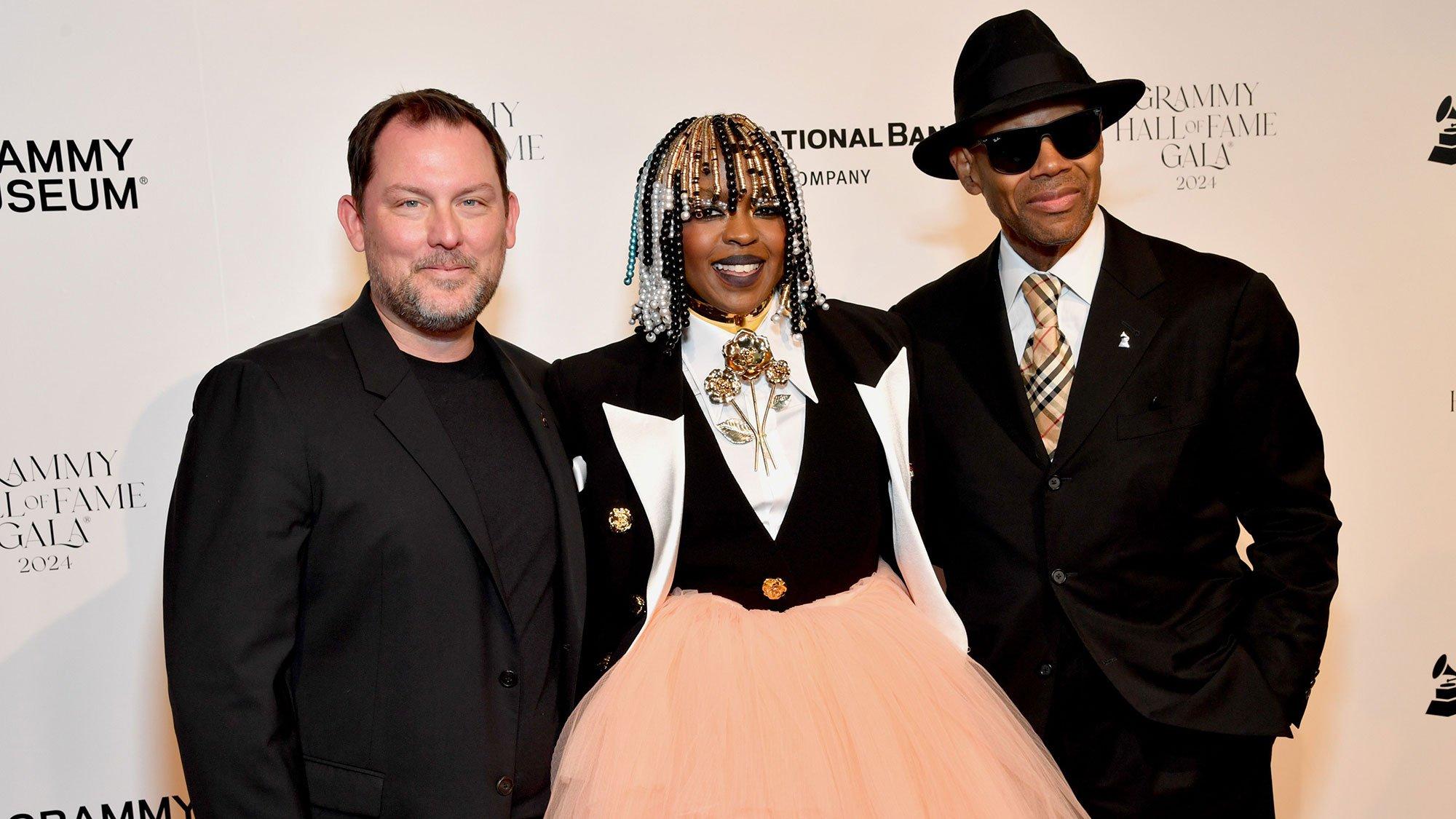
Photo: Sarah Morris/Getty Images for The Recording Academy
list
6 Key Highlights From The Inaugural GRAMMY Hall of Fame Gala Honoring Lauryn Hill, Donna Summer, Atlantic Records & Many More
The Recording Academy and GRAMMY Museum celebrated music's legacy with tributes to Charley Pride, Wanda Jackson, Buena Vista Social Club, and more, featuring performances by Andra Day, The War and Treaty, and other musical greats.
Many years ago, veteran CBS journalist Anthony Mason lost his entire record collection when it disappeared in transit as he moved from one place to another. Mason was inconsolable, and you could still hear a tinge of sadness in his voice when he recounted this painful story at the inaugural GRAMMY Hall of Fame Gala, held on May 21 at the Novo Theater in Los Angeles. The evening’s eloquent and entertaining host, Mason was making a point with his personal anecdote of lost records: music is priceless, one of our most treasured possessions — both as individuals and as a community. Preserving its legacy is essential.
It’s been over 50 years since the GRAMMY Hall of Fame was established by the Recording Academy's National Trustees to honor records of deep historical significance that are at least 25 years old. This year, the Recording Academy and the GRAMMY Museum paid tribute to 10 newly inducted recordings (four albums and six singles) by artists including De La Soul, Lauryn Hill, Buena Vista Social Club, Donna Summer, Guns 'N Roses, Charley Pride, Kid Ory’s Creole Orchestra, the Doobie Brothers, William Bell, Wanda Jackson, and Atlantic Records, the annual Gala's inaugural label honoree.
The first Hall of Fame Gala was a dazzling event presented by City National Bank, complete with guest speakers and performances by Andra Day, The War and Treaty, William Bell, Elle King, and HANSON covering some of the inducted works. The event underscored the sumptuous variety that continues to define popular music, spanning the sounds of hip-hop, rock, country, R&B, disco, and even the venerable Cuban dance music of decades past.
Here are six takeaway points from an evening marked by celebration and transcendent musical memories.
Donna Summer’s “I Feel Love” Has Lost None Of Its Edge
Studious music fans are well aware that “I Feel Love” — written by Donna Summer with visionary Italian producer Giorgio Moroder and British songwriter Pete Bellotte — is a shimmering disco gem, a futuristic precursor to the entire EDM genre. What was stunning about the Gala performance of the track by singer and actress Andra Day is how edgy and fresh the 1977 track still sounds today. Day’s ethereal reading was appropriately hypnotic, with live drums, nebulous synth textures and glorious, three-part vocal harmonies.
The Future Of American Music Is In Good Hands With The War and Treaty
Formed by husband and wife Michael Trotter Jr. and Tanya Trotter, The War and Treaty were rightfully nominated for Best New Artist at the 2024 GRAMMYs earlier this year. The duo’s electrifying combination of Americana, gospel, and rock is especially effective on a live stage, and the pair delivered a memorable rendition of Charley Pride's inducted Hall Of Fame country hit, “Kiss an Angel Good Mornin’,” recorded in 1971. The War and Treaty also received a standing ovation later in the evening for their performance of Ray Charles' classic, "What'd I Say," released in 1959.
26 Years Later, The Miseducation of Lauryn Hill Is Still Ahead Of Its Time
Released in August 1998, The Miseducation of Lauryn Hill sold more than 10 million copies in the U.S. alone, and became the first hip-hop artist to win Album Of The Year at the 1999 GRAMMYs. At the Gala, Andra Day delighted the audience — including Lauryn Hill and her family — with a soulful version of hidden track “Can’t Take My Eyes Off You,” originally a Frankie Valli hit from 1967. Day's performance was marked by brassy accents and funky bass lines, creating an unapologetically lush rendition that mirrored the sonic richness of Hill's original take.
Atlantic Records Transformed The Face Of Global Culture
Celebrating 75 years of inaugural label honoree Atlantic Records in the span of a few minutes loomed like an impossible task, but the Gala producers paid tribute to the legacy label well. Beginning with a short video, the event segment highlighted the miraculous roster assembled by Ahmet Ertegun and Herb Abramson that included Ray Charles, Aretha Franklin, Led Zeppelin, ABBA, Phil Collins, and Bruno Mars — to name just a few. But it was the actual performances that highlighted the label’s hold on pop culture: Ravyn Lenae’s breathy take on Roberta Flack’s “Killing Me Softly With His Song” made a case for considering the 1973 hit as one of the most vulnerable recordings of all time. On the other side of the dynamic spectrum, the epic rendition of Led Zeppelin’s “Stairway to Heaven” by alt-rock quartet Shinedown was appropriately intense.
The Wondrous Legacy Of Stax Records Should Not Be Underestimated
The home of such legendary artists as Otis Redding, The Staple Singers and Carla Thomas, Memphis-based Stax Records developed a rich, ragged sound with gospel, blues, R&B and luminous pop as its foundational pillars. Currently the subject of an HBO documentary series, "Stax: Soulsville USA," the record label defined American music during the ‘60s and ‘70s. Memphis singer/songwriter William Bell was one of its most prolific artists, and he regaled guests with a performance of his Hall of Fame inducted debut 1961 single, “You Don’t Miss Your Water.” At 84 years of age — and the winner of a Best Americana Album at the 2017 GRAMMYs — Bell was in rare form, and the band backed him up seamlessly, reproducing the sinuous organ lines of the original.
Read more: 1968: A Year Of Change For The World, Memphis & Stax Records
Future Editions Of The Gala Will Continue To Surprise And Delight
The inaugural GRAMMY Hall of Fame Gala set a high standard for future celebrations of iconic recordings. The event proved to be fertile ground for the creation of indelible music moments, showcasing the beauty and authority of music across genres and generations. Other honored Hall of Fame inducted recordings including De La Soul’s 3 Feet High And Rising, Guns’N’Roses Appetite For Destruction, the Buena Vista Social Club’s debut, Wanda Jackson’s “Let’s Have A Party,” Kid Ory’s Creole Orchestra’s “Ory’s Creole Trombone” and The Doobie Brothers’ “What A Fool Believes.”
As we look ahead, the excitement for future Galas grows, with each event promising to honor more historic recordings, and uphold the tradition of celebrating excellence in music's rich legacy.
Explore The 2024 GRAMMY Hall Of Fame Inductees
Revisiting 'The Miseducation Of Lauryn Hill': Why The Multiple GRAMMY-Winning Record Is Still Everything 25 Years Later
Remembering De La Soul’s David Jolicoeur, a.k.a. Dave and Trugoy the Dove: 5 Essential Tracks
Guns N' Roses 'Appetite For Destruction' | For The Record
An Ode To Donna Summer's 1970s: How The Disco Queen Embodied Both Innovator And Vixen
Essential Hip-Hop Releases From The 1980s: Slick Rick, RUN-D.M.C., De La Soul & More
For Charley Pride, Black Country Music Was A Self-Evident Truth
Beyoncé To Alison Krauss: 10 Times Women Made GRAMMY History
Love To Love Them, Baby: From Donna Summer To Dua Lipa, Meet The Women Singers Who Shaped (And Continue to Shape) Dance Music
10 Albums That Showcase The Deep Connection Between Hip-Hop And Jazz: De La Soul, A Tribe Called Quest, Kendrick Lamar & More
'The Miseducation Of Lauryn Hill': 25 Facts About The Iconic Album, From Its Cover To Its Controversy

Watch Kenny Loggins And Michael McDonald Take Home A GRAMMY For Song Of The Year For "What A Fool Believes" | GRAMMY Rewind
A History Of Casablanca Records In 10 Songs, From Kiss To Donna Summer To Lindsay Lohan
1968: A Year Of Change For The World, Memphis & Stax Records

Lauryn Hill's 'The Miseducation Of Lauryn Hill' | For The Record
